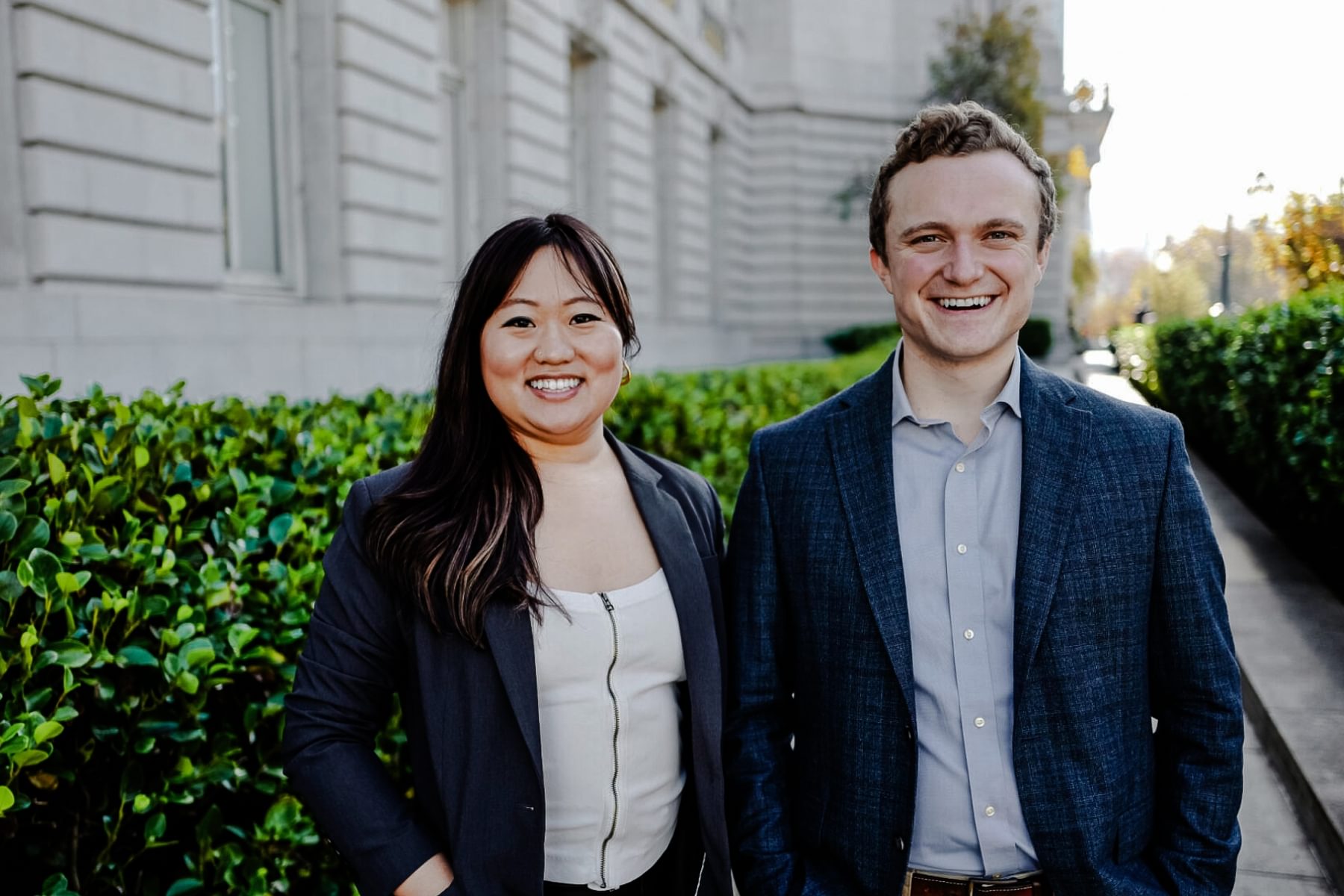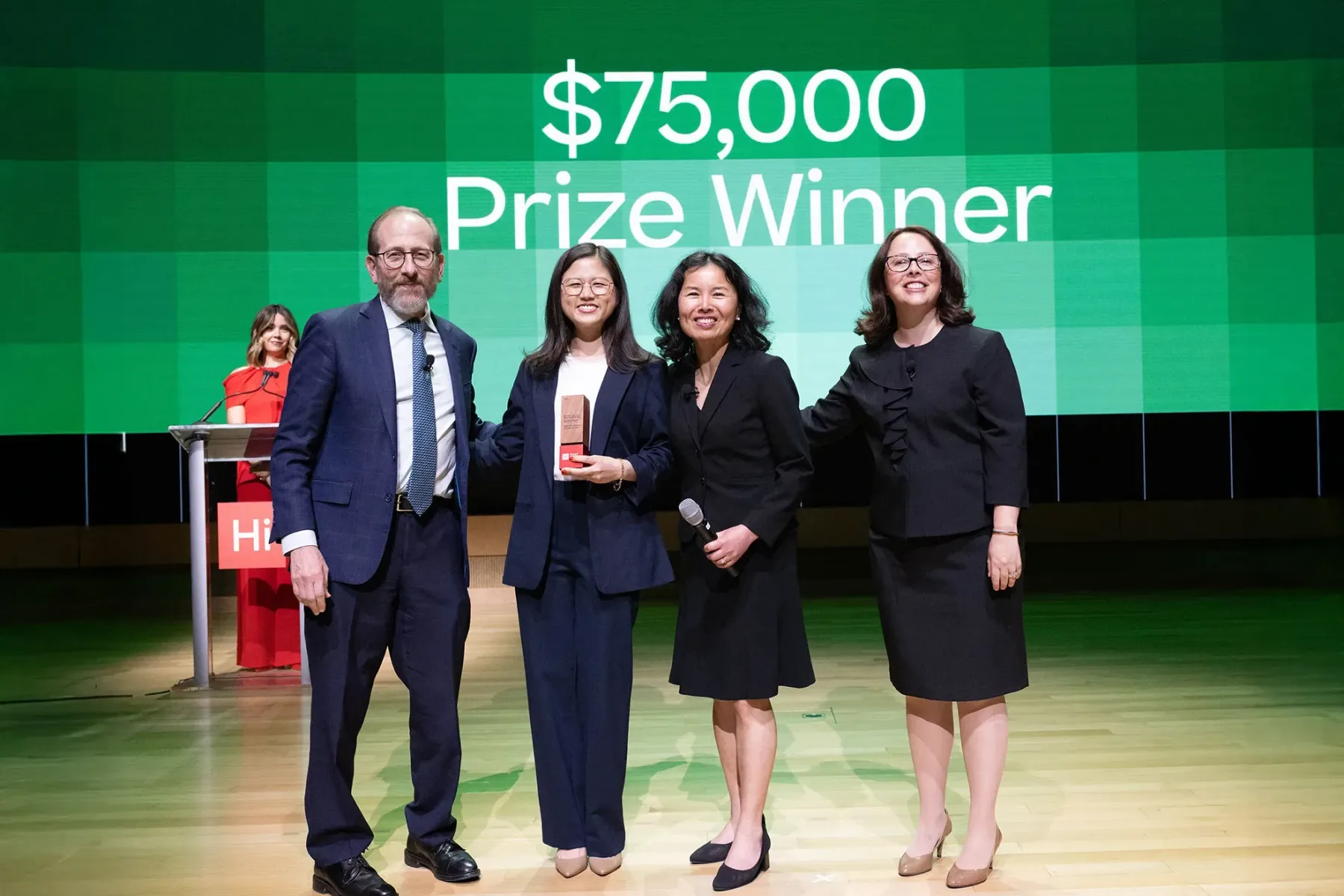The relationship between big business and the environment is at a turning point and needs to be redefined, says Lydia Zemke. Which is why the Harvard Davies Lab fellow has been using her time as a student member at the Harvard Innovation Labs to search for new nature market solutions.
Zemke is asking big questions like: “How can we provide corporations with the environmental, social, and governance (ESG) tools to go beyond carbon accounting and to start measuring and reducing their impact on nature?”
Zemke is a former predoctoral research fellow at Harvard Kennedy School’s Belfer Center for Science and International Affairs. And this isn’t her first go-round as a startup founder. Three years ago, she launched Piriko, a communication platform to foster community on campuses among new college students. “Research was showing us that a sense of belonging actually played a key role in student retention,” she says. But when the pandemic hit and the campus experience was put on hold, so was her venture. “By then I had gotten the entrepreneurial bug,” says Zemke, who wasn’t ready to give up on being a founder. “My first venture made me realize that I could keep doing this, if I change direction a little,” she says.
The PhD perspective
As a PhD candidate, Zemke had initially assumed she’d continue her work with the United Nations (where she had more than five years of program management experience) or work for a university upon graduation, but after launching her first startup, she realized that entrepreneurship had more in common with her studies than she’d previously imagined, and likens the PhD experience to entrepreneurship.
“A PhD allows you to take a very specific research question and come up with a methodology to answer it,” she explains. “And entrepreneurship is all about solving a pain point — it’s a way to continuously problem-solve and build something concrete. In [the field of] research, you write articles, you write books, you give lectures, you attend conferences. But that wasn’t tangible enough for me. I really wanted to have a bigger impact. Building a company is one way of doing that.”
One advantage PhD students have, she says, is asking unique questions and developing strong understandings of distinct problems — skills that founders call upon regularly. So with her latest venture, she’s asking: “With the vast majority of remaining biodiversity occurring in developing countries, how do you make the case for investing in the environment in places facing competing priorities and socioeconomic challenges like food insecurity, public health crisis, and struggling economies?”
The future of life on earth
Biodiversity, the variety of species that holds the balance of our planet’s biosphere, just might be our world’s most precious resource. Without it, experts say, there’s no future for life on earth: the ecosystems responsible for everything from the air we breathe to the food we drink will disappear. Business as usual will no longer be an option when supply chains worldwide are disrupted by the erosion of our environments. Lydia Zemke is one of the i-lab founders looking for solutions to keep industry, and our planet, alive.
With the erosion of biodiversity comes the destruction of economies, food security, health, and quality of life. Businesses are more dependent on nature than everyone realized. New studies are showing that more than half of the world’s GDP is either moderately dependent, or highly dependent, on nature.”
Lydia Zemke
The carbon market, one of three emerging nature markets, “is just the tip of the iceberg,” Zemke says. Half of the world’s GDP (think the food and beverage industry, agriculture, construction and the pharmaceutical industry) is moderately or highly dependent on nature, and yet we are losing nature at an unprecedented rate. Biodiversity and nature loss are ranked as the third biggest risk facing humanity in the next 10 years. Since nature markets are not well understood, we often underprice the natural resources they depend on, leading to inefficient usage despite their critical role in the global economy. In short, carbon accounting isn’t enough on its own: We need brand-new solutions for investing in our future. Zemke’s venture is “still in the exploratory phase,” she says. “I’ve been looking at it from the corporate-investing perspective, but also realizing that there are many different business models that could emerge.” Meanwhile, she’s also working with EarthAcre, another i-lab venture bringing biodiversity assets to market.
Private sector funding for nature-based solutions
Historically, it’s been the public sector that invests in the environment “because it’s considered a public good,” she says. “But you’re starting to hear that the private sector should step in and invest. We’re seeing big companies like Patagonia, Microsoft, Danone, Apple, and others, make big commitments to conserve and restore nature, independently of their carbon emissions targets. And so my research looks at the role of private finance for nature-based solutions and what their investments look like on the ground in developing countries. What are their motivations behind investing and how can technology help scale these solutions? It is still very early, but very promising and very exciting.”
For those interested in learning more about opportunities in nature markets or considering corporate nature strategies, Zemke invites you to connect with her via email at lydiazemke@fas.harvard.edu.
Zemke says the network she’s developed at the Harvard Innovation Labs has helped her as an early-stage venture creator because she can learn from her fellow founders’ experiences. She has taken advantage of one-on-one mentorship and workshops, now sits on the i-lab’s new student advisory board, and serves as an advisor to Earth Acre, another i-lab venture in the nature market space.





